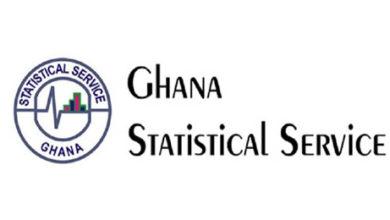Govt Resolves Salary Delay Challenges Of Newly Recruited Teachers

The management of the Ghana Education Service (GES) is engaged in a series of meetings with the Controller and Accountant-General’s Department (CAGD), the Public Services Commission (PSC) and the Ministry of Finance to resolve challenges in the processing of salaries of some staff of the GES.
The challenges have left 9,619 newly recruited GES staff under the double track educational system who started work in November 2018 without their first salaries.
Also included in the list are teachers who were recruited in March 2018.
Interview
In an exclusive interview with the Daily Graphic, the Director-General of the GES, Professor Kwasi Opoku-Amankwa, said an additional 22,701 staff of the service who were promoted last year were also yet to be placed on their right salary scales.
He assured those affected that the GES was working fervently with all stakeholders to ensure that all outstanding salaries and related arrears were paid in due course.
He commended the staff of the Payroll Unit for putting in extra effort, sometimes to their discomfort, in order to get the work done.
Causes
The current delay in payroll processes is as a result of systems and connectivity challenges during the migration of the GES from the Integrated Personnel Payroll Data (IPPD) Two onto the Human Resource Management Information System (HRMIS).
This has caused delays in the issuing of staff identity cards (IDs) and the capturing of staff biometric data for the processing of salaries.
Although the GES smoothly migrated staff on its payroll onto the HRMIS under the Ghana Integrated Financial Management Information System (GIFMIS), those with promotions and pay rise could not be effected as a result of the shift.
Measures
Prof. Opoku-Amankwa said a number of measures were being taken to ensure that the affected staff were paid soon and mentioned some of them as increasing the number of staff at the Payroll Unit to expedite the imputing of the data of the affected staff.
“In almost all the regions the number of staff keying in the data has been increased significantly. At the headquarters, the number of staff keying in data has been increased from six to 16; the three in the Ashanti Region have increased to eight, while in the Central Region the number has gone up from four to nine,” he indicated.
Night duties
He said one major radical step taken by the Payroll Unit to address the situation “is the decision to work in the night, instead of the day. So staff of the unit are compelled to sacrifice their evening comfort to help complete the process”.
He explained that data entry from the initiator to the approver relied heavily on the Internet and lamented the fact that the slow speed of the Internet was hampering progress of work.
Prof. Opoku-Amankwa said, for instance, that even though each of the workers imputing the data could work on a maximum 48 forms a day, “unfortunately, due to the huge number of staff logging onto the platform, it turns to be exceptionally slow, to the extent that sometimes each of them does only two or three inputs the whole day”.
He further explained that it was when the service realised the challenge that it asked that staff of the Payroll Unit work at night to complement and fast-track the work.
Normal procedure
He said aside from the challenges posed by the migration, the new software had its own challenges, as every newly recruited member of staff of the service “normally goes through a process before he or she starts receiving salary”.
He explained that when a person was recruited, his or her documents went to an officer called the initiator, who imputed the biodata and forwarded it to another officer called the reviewer, who ensured that the right data had been entered.
“But the reviewer will then have to wait until it is 27th of the month when the CAGD would have opened the systems to work on salaries of the following month,” he said.
From the 27th of the month, the reviewer had six days to push all the data he had cross-checked to the third person called the approver, he said, adding that every newly recruited staff had to go through the same procedure.
Timelines
Asked when the newly recruited staff would receive their first salary, Prof. Opoku-Amankwa explained that with the extra effort the Payroll Unit staff were putting in, the first batch of affected staff would receive their salaries in May, with the anticipation that by June all should receive their salaries, except in peculiar cases.
Apology
He apologised to the affected staff and gave an assurance that the management of the GES was adopting various options to fast-track the process.
Prof. Opoku-Amankwa said the service was aware of the inconvenience, suffering and frustration the affected staff were going through “and that is why it has engaged with all the relevant stakeholders, such as the PSC, the CAGD and the Ministry of Finance, to address the issues”.
“We’re motivating the officers directly in charge to expedite action and work around the clock to resolve the issues,” he said.
Source: Graphic.com





